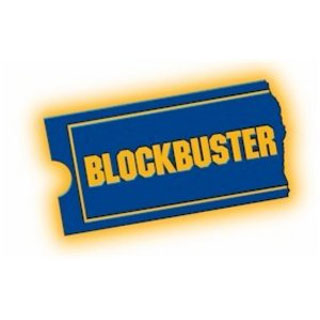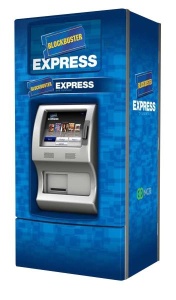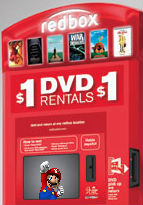 Is copying Redbox’s strategy a way for Blockbuster to survive? I’m beginning to think so.
Is copying Redbox’s strategy a way for Blockbuster to survive? I’m beginning to think so.
Earlier this week, I rented from a Redbox for the first time. I have walked by these kiosks in our area for well over a year now, and in recent months they’ve become quite numerous — Redbox lists 19 of them within 10 miles of my house alone. The allure of a movie for just a buck a night is just too good of a deal to pass up.
While entering my selections into the kiosk — Star Trek and Angels & Demons — I couldn’t help but wonder why Blockbuster wasn’t doing the same thing. Heck, it costs you $5 to rent these same movies at their stores no matter whether you return them the next day or however long your local store allows the movies to be out.
 It’s for this reason why Blockbuster is struggling. In this new world, it no longer is worthwhile to have a storefront because of the overhead costs. Think about it. Netflix has considerably less infrastructure costs because all its business is online and only needs shipping warehouses to serve its customers; Redbox has even less overhead since it essentially freeloads off the locations where its kiosks sit.
It’s for this reason why Blockbuster is struggling. In this new world, it no longer is worthwhile to have a storefront because of the overhead costs. Think about it. Netflix has considerably less infrastructure costs because all its business is online and only needs shipping warehouses to serve its customers; Redbox has even less overhead since it essentially freeloads off the locations where its kiosks sit.
There’s just no way that the company can be on a level playing field with its competitors because of this. Tuesday’s news of the company partnering with NCR to place 200 “Blockbuster Express” kiosks in Duane Reade Drugstores across New York City could arguably be Blockbuster’s path to salvation.
When the company is done, about 2,500 kiosks will be up and running around the country. Each will hold about 900 DVDs, which will give the movie retailer an opportunity to offer a wider selection than that of Redbox, which can only hold about 500 discs.
As the company moves to this system, it will allow Blockbuster to continue closing down its retail locations, which have become its Achilles heel. This will stink for those employees that could soon find themselves out of a job, but its just a reality of our modern digital economy.
It’s going to be very interesting to see how Redbox responds. Blockbuster eliminated its competition by simply being able to offer a broader selection of movies than its smaller competitors, and now the company that arguably pioneered the movie rental kiosk finds itself in the same situation.
One thing it has so far as an advantage over Blockbuster is scale — some 17,500 kiosks are located in McDonald’s, Wal Marts, Walgreens, and other grocery and drug stores around the country. Blockbuster will need to quickly ramp up to legitimately compete.
 Redbox is coming to the rescue of video game rentals, adding games to every one of its ubiquitous DVD kiosks.
Redbox is coming to the rescue of video game rentals, adding games to every one of its ubiquitous DVD kiosks.
 Video games seem like a natural way for Redbox to grow, so I wasn’t surprised when the kiosk operator
Video games seem like a natural way for Redbox to grow, so I wasn’t surprised when the kiosk operator  Is copying Redbox’s strategy a way for Blockbuster to survive? I’m beginning to think so.
Is copying Redbox’s strategy a way for Blockbuster to survive? I’m beginning to think so.